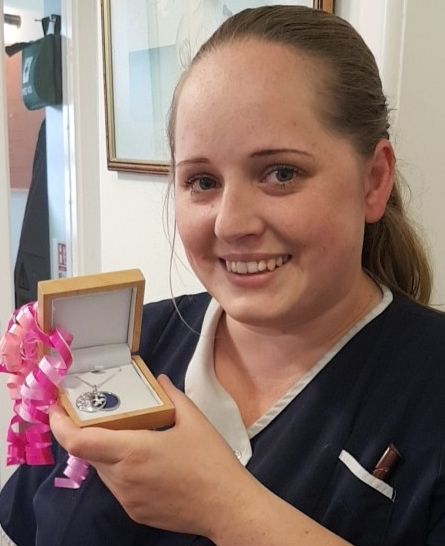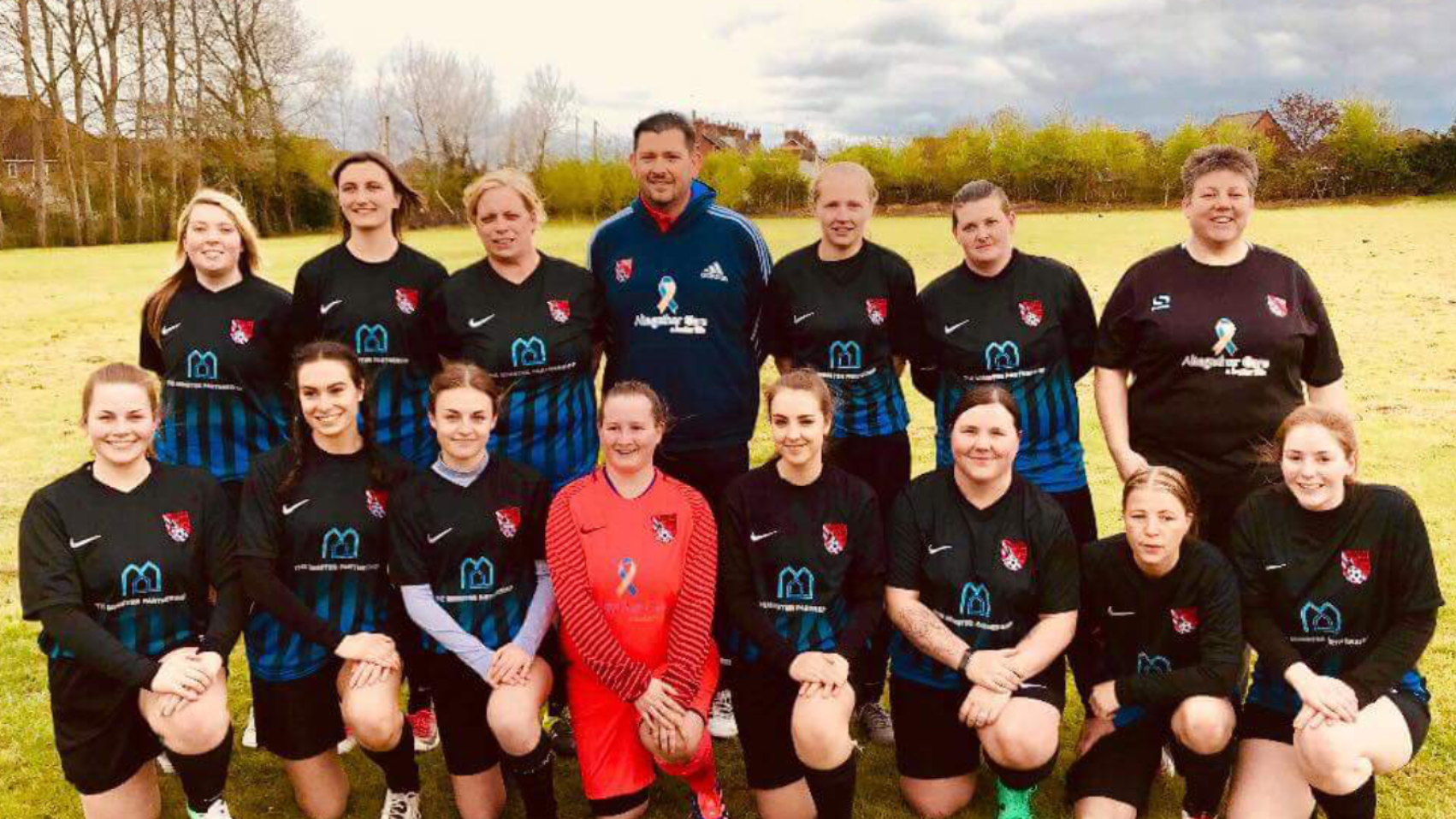Congratulations to Stacey Williams at Weymouth Care Home who celebrated a Long Term Service Award with her colleagues recently. Stacey (Head of Care), is sent a big hug from everyone in recognition of her award.
Stacey wins Long Term Service Award


Congratulations to Stacey Williams at Weymouth Care Home who celebrated a Long Term Service Award with her colleagues recently. Stacey (Head of Care), is sent a big hug from everyone in recognition of her award.

‘Bed blocking’ in NHS hospitals is a major problem. According to NHS England around 5900 beds are occupied by older people who are medically fit for discharge. They remain in hospital because they don’t have a suitable package of care in place to allow them to return home. That adds up to over 170,000 days of delays for people with a medical need for those beds.
And for too many older people the next stage after a stay in hospital is long term residential or nursing care. This isn’t always what they want and may not be their best long-term option. Happily, it now isn’t inevitable.
Often, what is needed is an interim phase of assessment, support and therapy as a stepping stone between hospital and home. Working with Yeovil Hospital Trust, Altogether Care has been chosen to introduce a new Home First approach at Sherborne House.
Home First is a support and reablement programme involving the NHS, local authority and the voluntary sector. It offers short term reablement support, either at home or in a care home setting. The aim is to help older people recovering from an operation or health trauma to regain the mobility and capability to live more independently.
In late 2017 we opened a 10 bed Home First unit at Sherborne House. It offers ‘Pathway 3’ support (the highest level of Home First support) for up to 28 days.
During their stay the temporary residents receive intensive support from a multi-disciplinary team involving physiotherapists, occupational therapists and other specialists to aid their recovery as they progress to the next stage of their care.
Residents are fully involved in planning the reablement support and in deciding their preferred destination at the end of their stay.
A Success Story
Since the unit opened we have helped 60 people. We are proud and delighted that 33 of these have fulfilled their wish to return home, with whatever ongoing support they need.
“Home First is about giving people options,” says Caroline Sharp, manager at Sherborne House. “Without the reablement support we are able to offer most, if not all, of these people would have gone straight to residential care or remained in hospital using a bed that is badly needed. They may have been stuck in hospital because they were not immediately able to look after themselves at home.”
Home First helps to speed up the discharge from hospital for many patients. This is vitally important because the longer older people spend in a hospital, the more likely it becomes that long term residential or nursing care becomes the only viable option.
“Feedback from our NHS partners, residents and families has been overwhelmingly positive. For everyone at Sherborne House it’s incredibly motivating to be making such a to the quality of life in people’s later years” added Caroline.
Further feedback from Somerset County Council has also proven that the programme has been a great success, as the results of this Home First trial were recently presented to the council’s health and wellbeing board by the strategic manager for adult social care, Tim Baverstock. Tim says that as a direct result of the programme, current residents have become more active. He adds “without getting these people out of hospital, the system in Somerset may have broken”.
For more information on the Home First programme at Sherborne House, please contact us.

Say Hello to Samantha Hansford who has recently joined Altogether Care as Manager of Weymouth Care Home. We caught up with Sam and asked a few questions about her new role.
What are you most looking forward to in your new role?
I am looking forward to working within an established team to provide person centred care and maximising the quality of life for our residents.
What attracted you to working in the care industry?
I have always been someone who enjoys working in a team environment and when I had my first ever job in the sector I realised how much I enjoyed making a difference to people’s lives.
What do you think are the modern day challenges for care homes?
Modern day challenges for homes is keeping up with technology and the ever changing world of health and social care. It is very refreshing to work with a company that is continually moving forward with both technology and ethos.
What is the most positive thing you have discovered about Weymouth Care Home?
The team are positive, caring and provide dedication to ensuring our residents have a positive living experience.
What did you do prior to working for Altogether Care?
My previous experience has been in the Health and Social Care field. I have been a registered manager in the local area and more recently, I was working in Somerset then Liverpool registering Provider companies and providing support to registered managers.
A warm welcome is extended to Sam on behalf of everyone at Altogether Care.

Bad news always travels faster than good. And it grabs the headlines. Because of high profile stories in the national press you could easily get the impression that good care homes are hard to find. The reality is different, and much more positive.
The Care Quality Commission (CQC) inspects all adult social services providers. Findings are categorised into four levels: outstanding, good, requires improvement and inadequate.
To be rated as good or outstanding, care homes must demonstrate high standards for how they are run, the capabilities of the care team and standards of person-centred care they deliver. Over 80% of residential care homes are rated as good or outstanding.
Smaller Homes Perform Better
The other common perception is that care homes are run by large faceless companies. Some are, most are not. There are thousands of smaller homes that are often family run businesses owned by people take great pride in the standards of care they deliver.
CQC data shows 85 percent of services catering for 1-50 people were rated as good or outstanding, compared with 73 percent of larger services for 101-250 people.
The size of the care or nursing home seems to make a significant difference to the standard of care you could expect to receive.
This is probably because a smaller number of residents makes it easier to shape services around each individual. For example, therapies can be incorporated into care programmes to help individual residents lead fuller lives.
This extends to activities that help residents remain active and engaged; these are essential for promoting physical and emotional wellbeing.
It might also be that in smaller homes we have more time to interact with each individual. We are better able to notice any changes to their state or mind or health and to make changes to their care plan accordingly.
If you are looking for residential care for yourself or a relative the news may be better than you imagine. There are many good care homes and there’s plenty of information available online to help you make the best choice.

Verwood Ladies Football Team is positively thriving after recent media coverage and sponsorship from Altogether Care, Minster Partnerships and Warborne.
The team welcomed both a new manager and several new players this season and are looking forward to winning games and maintaining their positive outlook.
Karla Jordan from the team said, “On behalf of the team we’d like to thank our sponsors who have made all the difference with their generosity”.
